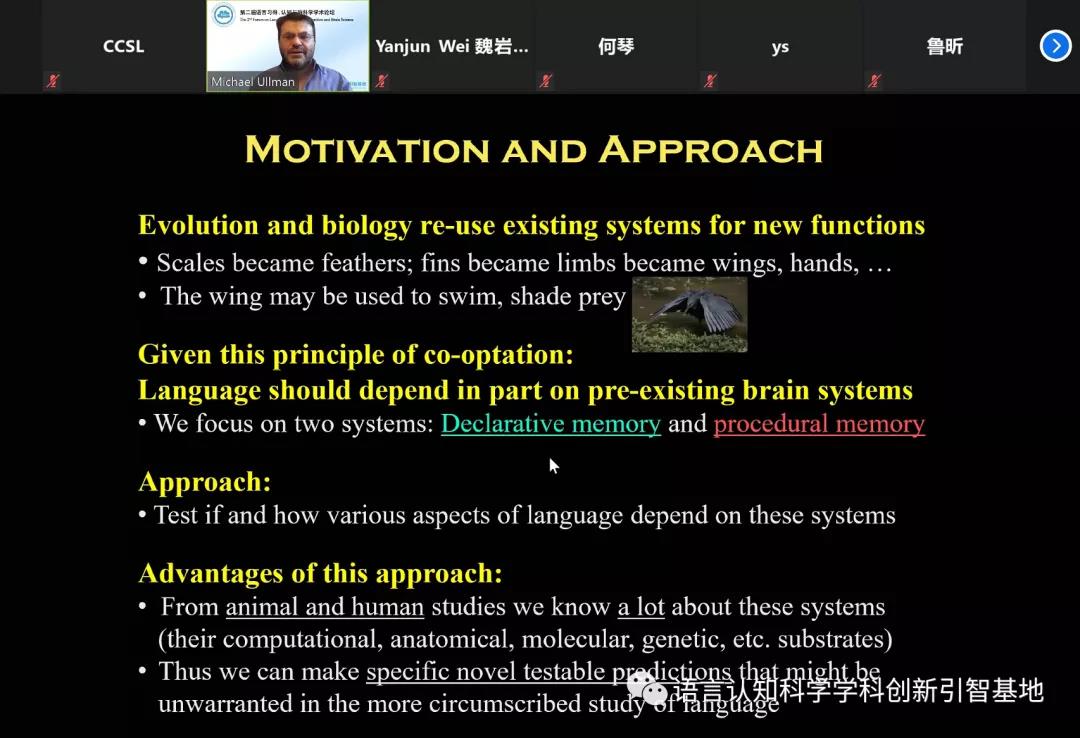
On the afternoon of November 4th, Professor Micheal T. Ullman from Georgetown University in the United States was invited to the second academic forum on language acquisition, cognition and brain science, bringing us the lecture entitled "How understanding the neurocognition of language can help us improve second "Language learning and pedagogy". This lecture is the eighth lecture of the forum. It was initiated by Professor Wang Jianqin, Director of Center for the Cognitive Science of Language, Beijing Language and Culture University, and hosted by Dr. Wei Yanjun. The lectures broadcasted via zoom and bilibili, which attracted hundreds of domestic and foreign audiences.
In this lecture, Professor Ullman took the relationship between cognitive neuroscience and language learning and pedagogy as an entry point, focusing on the two systems of language memory, namely the Declarative Memory System and the Procedural Memory System. Memory System), while separately expounding the two, the relationship between the two cooperation and competition is also discussed in detail. Professor Ullman combed the previous studies on declarative memory and procedural memory in the first and second languages in behavior, neuropathology, neuroimaging and electrophysiology, and made an inductive summary, and derived two systems from them Implications for second language learning and teaching methods. The general conclusions are as follows: 1) Language depends on both the declarative memory system and the procedural memory system; 2) The vocabulary and grammatical knowledge in the language depend on the two systems differently, and the specific expression is that the grammatical knowledge of a language is more Relying on procedural memory, vocabulary and part of grammatical knowledge are expressed in declarative memory; 3) There is a relationship of redundancy mechanisms and see-saw effect between the two memory systems; 4) Second language immersion The type of (L2 exposure) and the level of immersion are different in the performance of the two systems; 5) The neuroscience method of spacing and testing effect can further improve second language learning and memory retention.
Professor Ullman’s lectures are informative and easy to understand. The comprehensive interpretation of the declarative memory system and the procedural memory system provides us with a lot of reference and inspiration for studying the first and second language declarative memory and procedural memory.